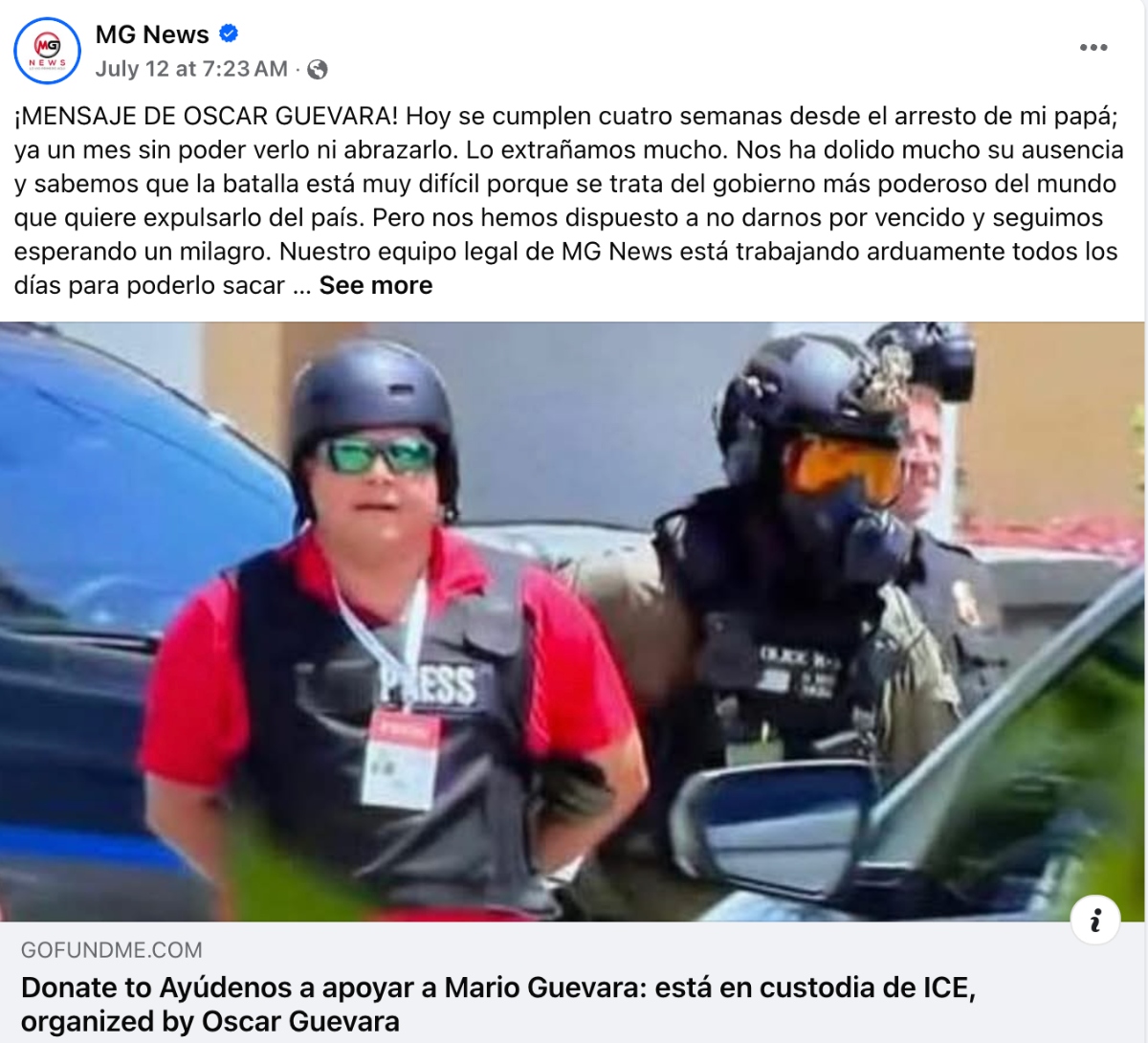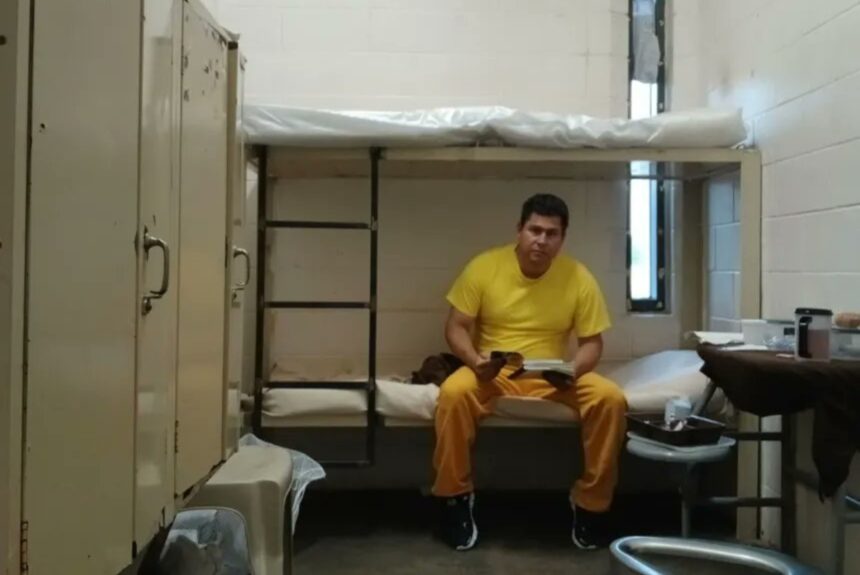The case of Salvadoran journalist Mario Guevara, detained since June in Georgia, took a critical turn after the Board of Immigration Appeals (BIA) issued a final deportation order against him.
The measure, announced on the night of September 23, has been rejected by civil rights organizations and his legal team, who warn that it is a violation of press freedom and an attempt to retaliate for his journalistic work.
Why is Mario Guevara under immediate deportation?
UPDATE🚨 An immigration board issued a final removal order last night for journalist Mario Guevara. He could be deported any moment. We renew our demand for his immediate release. #FreeMario https://t.co/hBgoVLpPzf pic.twitter.com/Kvb4ZC3kV7
– Committee to Protect Journalists (@pressfreedom) September 24, 2025
The Board of Immigration Appeals justified its decision on the grounds that Guevara failed to post an immigration bond in 2012, when an immigration case that had been closed more than a decade ago was reopened.
According to the attorneys, this justification is erroneous and contradicts even official ICE records that show otherwise.
The board’s new ruling reverses a previous order by an immigration judge, who had granted him bail.
With this order, Guevara could be deported at any time, even though his advocates insist that he has a clear legal path to permanent residency.
Reactions from defense organizations
The son of a journalist in immigration detention pleads for the release of his father, saying his dad has been his caregiver and source of strength since he underwent surgery for a brain tumor. https://t.co/95ktrb7KWN
– NBC News (@NBCNews) September 24, 2025
The Committee to Protect Journalists (CPJ) called the decision devastating.
Its regional director for the Americas, José Zamora, warned that Guevara “could be expelled at any time,” and denounced that his prolonged detention has already put press freedom in the U.S. at risk.
The American Civil Liberties Union (ACLU) also reacted strongly.
In a statement, attorney Scarlet Kim of the Expression, Privacy and Technology Project, noted:
La deportación de Mario Guevara sería devastadora para un periodista detenido injustamente durante más de 100 días, en flagrante violación de sus derechos amparados por la Primera Enmienda
Scarlet Kim
Andrea Young, executive director of the ACLU of Georgia, added: “Mr. Guevara’s arrest and detention point to an erosion of the civil rights of all Georgians, particularly journalists, whose work is fundamental to democracy.”
Legal actions to stop deportation

Upon learning of the final deportation order, Mario Guevara’s legal team immediately filed an emergency motion for a temporary restraining order (TRO).
This measure seeks to prevent the deportation from being executed while a habeas corpus action is pending in the U.S. District Court for the Southern District of Georgia.
That petition was filed in August by a legal team comprised of the ACLU, the ACLU of Georgia, the University of Georgia First Amendment Clinic, and the law firms of Garland, Samuel & Loeb, P.C. and Diaz & Gaeta Law, LLC.
The lawsuit argues that Guevara’s prolonged detention constitutes retaliation for his journalistic work, restricts his freedom of expression and violates his right to due process under the First and Fifth Amendments of the U.S. Constitution.
A well-known journalist at risk
Mario Guevara, 47, came to the United States more than two decades ago fleeing violence in El Salvador.
He became a prominent voice in the Latino community in Atlanta for his work documenting immigration raids and broadcasting live from the scene.
She even won an Emmy award for her coverage.
He was arrested last June 14 in DeKalb County while live-streaming a protest.
Although the local charges were dropped, ICE kept him in detention and he has since become a symbol of the risks faced by journalists covering immigration issues in the US.
Mario Guevara’s possible deportation not only affects his family and the migrant community that follows his work, but also sets a dangerous precedent for press freedom in the United States.
Civil rights organizations insist that the case reflects how immigration enforcement can be used punitively against those who exercise their right to inform.
In the meantime, the final decision remains in the hands of the federal courts, which must decide whether to grant the temporary restraining order to prevent Guevara’s immediate removal and ensure that his case is reviewed in accordance with the Constitution.























